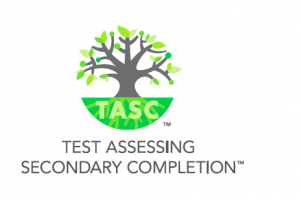Up To The TASC? Follow These Tips, And You Will Be

What you’ll find when taking each of these courses is that they tend to put a lot of emphasis on Common Core knowledge and comprehension levels. They are, in short, no easy way out. If anything, going to high school and learning along with your peers through a number of different highly qualified instructors — that’s the easy way out. To pass the TASC, you’ll have to tap in to your inner drive, and oftentimes you are your only motivator. The good news: that’s enough, provided you incorporate the following tips and strategies.
Tie your studies into your prep course. In states that offer the TASC, there are a number of training courses available in which you can learn from someone familiar with the test what to expect from both format and content perspectives. However, do yourself a favor if taking a course. Don’t simply show up and expect that to work miracles. It won’t. As soon as you get home, carve out about an hour or two to review everything that you just heard. You may even want to record the entire course and listen to it multiple times — like in the car, on the way to work or home — before the next class. The best time to affirm the information you’ve just learned is shortly after learning it. This will solidify your understanding more easily than if you went to the class, forgot about studying, and then crammed a week before the exam. And on the topic of cramming…
Don’t depend on cramming to pass you. It won’t. If the only studying that you’re doing involves taking a few practice tests the night before the exam, then you’re going to be in for a long day when it comes time to take the TASC. That’s because — like the HiSET and GED exams — it’s a test that focuses more on comprehension than vomitable knowledge. While there is a knowledge base you should know in order to have the best chance on the test, you won’t go far if you’ve failed to embrace complex concepts like you would find on portions dealing with math and science. If you are unsure about your performance, then choose a testing date as far away from the present as possible. Then, take stock of what you know and what you don’t, and work backward from the deadline to see how you can appropriate your time for maximum effect.
Choose the right environment in which to study. The “where” part of your study time is as important as any other element. In choosing a good environment, you will want to focus on two key elements — good lighting and silence. If you’re the type who must have music, choose something that stimulates the mind rather than engages it. In other words, if you’re listening to songs that you can sing along with, then the quality of your study time will probably stink. Don’t think you’re special. Don’t fool yourself into thinking that it’s different for you. It’s not. You’ll be far more effective studying in silence or choosing something like classical or smooth instrumental jazz as a soundtrack. Make certain there are no lyrics. This ensures the only information going into your head is test-related.
On reading, don’t cherry-pick. You have to read a lot of information when taking a test like the TASC, and you may think you’re going to save time by picking out the answers to the questions without reading the passage, but you will actually take much longer and it will probably result in more wrong answers. By reading the passage first, two things will happen: 1) you’ll be able to answer some questions correctly without referring back to the passage in any way (time saver!); and 2) you’ll be able to find passages that deal with more difficult questions in an easy and timely manner (also a time saver!). The five minutes that it takes to read the passage will save you valuable minutes of frustration when it comes time to answer the questions. Similarly, for areas like math, don’t try to solve the problems until you’ve learned the concepts. It may take you a little longer to learn HOW to do something, but once you know, you’ll be able to work problems and arrive at accurate conclusions 10 times better than if you just tried to “wing it.”
Take a break. The human brain isn’t quite equipped for long periods of strenuous mental activity. If you plan on studying six hours, for instance, then you’ll need to take anywhere from 12 to 18 breaks. That’s because all brains run on a short tank when it comes to attention span. Twenty to 30 minutes is about the best we can do. You might be able to stretch that out a bit if you “fool” your brain into thinking that you can take a break any time after you’ve put in 20 hard minutes of studying, but 45 minutes to an hour of non-stop focus is tough to do with any level of consistency. Make sure that your breaks don’t last very long and that they involve some form of movement. Stretches, walks, even a light jog — do whatever you can to break up the monotony and keep your body limber.
Finally, think about the material when you’re not studying. If you’ve put in your intense, focused study time, don’t think you’re off the hook. Use some of your free time to think about the concepts, information, or subject areas that are giving you trouble. By allowing your mind to work on things without the pressures of a study environment, you’ll be surprised how many difficult pieces of the puzzle suddenly fall into place.
How do you work best? Share some of your TASC study tips in the comments section, or let us know what you’re having trouble with, and we’ll do a followup. Also, don’t forget to take a free practice TASC here. Best of luck!








